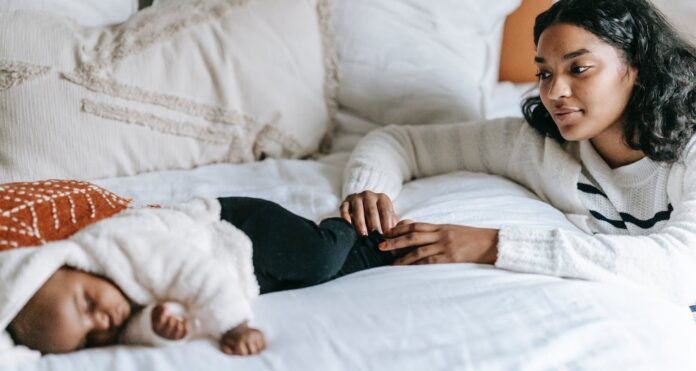Sleep apnea is a common, too frequently undiagnosed health problem that presents a myriad number of problems. The key to living a healthy life in spite of being diagnosed with sleep apnea is learning everything you can about the best treatment options. Continue reading this article to discover several sleep apnea health care tips.
Skip sleeping pills if you are prone to bouts of sleep apnea. You may feel you need them to get to sleep, but they have a similar effect as alcohol on the body. They also have additional side effects besides the obvious ones. Stay away if you want to lessen your sleep apnea symptoms.
Have a mouth guard made for you. These are made for people with sleep apnea. It provides a more comfortable option to using a CPAP machine. A mouth guard will work by positioning the jaw and tongue in a helpful way that will allow for easier breathing while asleep.
Avoid using sleeping pills and do not be tempted to consume alcohol before bedtime. Both sleeping pills and alcohol are sedatives, which can interfere with your breathing, as they cause your throat muscles to relax. You should also avoid other types of sedatives, including some prescription painkillers and many street drugs.
Do not take sleeping pills if you suffer from sleep apnea. These pills are not recommended if you suffer from this condition because they relax the muscles of your throat. Skipping them can actually help you get a better night of sleep because your apnea symptoms are not aggravated.
Try to sleep on your sides to keep sleep apnea from ruining your sleep. When you sleep on your back, the airways get obstructed due to the throat and nasal passages being more prone to obstruction. Be sure to go to sleep sideways and find out if that helps you to sleep tonight.
If you suspect that you have a sleeping disorder, but are unsure, enter a sleep study. They may be able to diagnose your disorder as sleep apnea and make suggestions regarding treatment. Treatments include mouth guards, CPAP, diet changes, and modifications of sleeping habits. You won’t know your options until you speak with someone about it.
For the sleep apnea patient using CPAP treatment, the wide range of options in machines and masks can seem overwhelming. The key to selecting the best equipment for your needs is to test out the various models yourself. Your Durable Medical Equipment (DME) provider should have a variety of masks and accessories available for you to try out. Don’t settle for the “standard” company mask. Insist on viewing several and being fitted properly. Comfort and good fit are key to successfully adjusting to CPAP treatment.
Stick to using just one normal sized pillow as you sleep. If you use very thick pillows or many pillows, you may end up sleeping at an odd angle that hurts the free flow of air through your airways. This actually causes you to have more breathing difficulty based on your position. So, you should stick to one pillow to help lessen any sleep apnea symptoms.
Sleep apnea events can be decreased by keeping regular sleep hours. Going to bed and getting up at approximately the same time every day will provide better and more relaxed sleep. This simple lifestyle change can be a big help when sleep apnea is in the mild to moderate range.
Try to slim down. Sleep apnea is exacerbated and sometimes even caused by obesity. Try losing enough weight to shift your BMI from obese to just overweight or even healthy. People who have lost weight have improved their sleep apnea symptoms, and some have even cured their sleep apnea completely.
If you have sleep apnea, and your CPAP does not seem to be working out for you, consider alternate types of machines. You may be a person who needs the air pressure to change throughout the night as you sleep. Your doctor can prescribe a machine that uses different technologies to deliver air, such as an APAP, a BiPAP, or a machine equipped with C-FLEX. Each of these adjusts the pressure up and down as you sleep, which can make it more comfortable and effective for you.
If you have sleep apnea and use a CPAP machine at night, consider using saline nasal spray. The continuous airflow being pushed through your nose every time you sleep can cause your sinuses to dry out. Keep them hydrated by using two pumps of saline nasal spray in each nostril morning and night.
There are different ways that sleep specialists will treat sleep apnea. They may start by treating an underlying medical condition, using oxygen while you are sleeping or utilizing breathing devices that will manage your obstructive sleep apnea. They could prescribe medications that will help with the sleepiness, but will not help with the apnea itself.
If sleep apnea is something that you are afflicted with, you might want to try the throat exercises known to improve the condition. Throat exercises build up the muscles around the airway, and can make them less likely to collapse. One such exercise is to use your tongue and press on the top of your mouth. Maintain this pressure for around three minutes before releasing. Do that every day for best results.
Alcohol has also been shown to negatively exacerbate the symptoms of sleep apnea. As a depressant it relaxes your throat muscles, making it easier for your airway to become blocked. By not drinking in the hours leading up to bedtime you give yourself a better chance of keeping your airways open.
In order to live a healthy life after being diagnosed with sleep apnea, it is important to educate yourself on the disease and study all of the latest, most effective treatment options. Sleep apnea is not a death sentence. By taking advantage of the tips and advice offered in this article you can dramatically improve your health.



